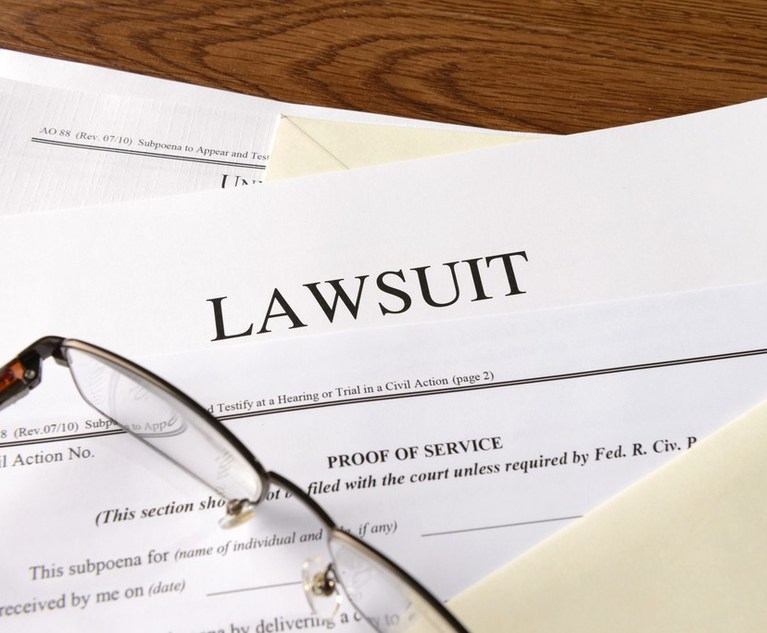Scott M. Himes

January 23, 2025 | New York Law Journal
A Primer on Using Third-Party Depositions To Prove Your Case at TrialThe decision for deposing a nonparty presents a Rubik’s cube of factors that need to be considered holistically to best prepare for trial.
By Scott M. Himes
13 minute read

October 06, 2023 | New York Law Journal
Don't Be a 'Tilting-at-Windmills' LitigatorLitigation occurs because parties are in a dispute. But not every issue, position, argument, and fact needs to be litigated to resolve the dispute. Parties often fight over issues that do not matter, and sometimes don't even exist. This article offers pointers for staying on the right course.
By Scott M. Himes
10 minute read

September 30, 2021 | New York Law Journal
Taking Depositions in Discovery for Effective Cross-Examination at TrialPreparing for and taking a deposition means playing the long game. What you do at the deposition arms you for cross-examination at trial—as long as you handle the deposition with trial cross squarely in mind.
By Scott M. Himes
13 minute read

August 16, 2021 | New York Law Journal
Reflections on the Well-Pleaded ComplaintFocus on this checklist for your next complaint. Doing so will help you get your case off to a solid start and, hopefully down the road, to a winning trial.
By Scott M. Himes
13 minute read

September 12, 2019 | New York Law Journal
Don'ts and More Don'ts of Taking DepositionsKeeping these "don'ts" in mind when taking a deposition will focus you on the "dos" for a successful deposition and, relatedly, a well-tried case in the courtroom.
By Scott M. Himes
11 minute read

September 21, 2018 | New York Law Journal
Pointers for Drafting an Effective Appellate BriefThink about these pointers the next time you put pen to paper for an appellate brief. They will make a difference in persuading the appellate court to right a lower court's wrong.
By Scott M. Himes
13 minute read

May 08, 2018 | New York Law Journal
The Essence of Litigating Successfully: 'Communicating Your Story Credibly'“Communicating your story credibly” should be the mantra for preparing and trying your case. Those few words speak volumes about how to win the case.
By Scott M. Himes
11 minute read

May 24, 2016 | New York Law Journal
'Modified' Business Judgment Rule for Going-Private TransactionsScott M. Himes writes that in its recent opinion in 'In re Kenneth Cole Productions, Inc., Shareholder Litigation', the New York Court of Appeals, following Delaware's lead, held that the board-friendly business judgment rule should apply to the challenge of a going-private merger if certain shareholder-protective conditions are met. The opinion sets forth a road map for how parties can structure such a merger to pass legal muster.
By Scott M. Himes
22 minute read

March 24, 2016 | New York Law Journal
The Quagmire of the 'Dual Fiduciary'Scott M. Himes and Brent Weisenberg write: In today's investment world, private equity firms, investment managers and other investors often acquire a substantial interest in a business and, as a consequence, earn the right to put "their people" on the company's board. That person is often well-versed in the portfolio company's business precisely because of the work of the investment firm, but because the person owes duties to both entities, this scenario can present challenging issues on the proper exercise of fiduciary duty.
By Scott M. Himes and Brent Weisenberg
21 minute read

July 15, 2013 | New York Law Journal
A Best Practices Primer for Drafting Settlement AgreementsScott M. Himes, a partner of Ballard Spahr Stillman & Friedman, writes: A well-crafted settlement agreement should be in every litigator's toolbox. Nonetheless, we have all received from opposing counsel a proposed agreement that is inadequate. And there are countless cases where a settlement agreement itself becomes the basis for a lawsuit, resulting in the parties' litigating over an agreement that had "settled" their dispute.
By Scott M. Himes
13 minute read
Trending Stories
- 1Pogo Stick Maker Wants Financing Company to Pay $20M After Bailing Out Client
- 2Goldman Sachs Secures Dismissal of Celebrity Manager's Lawsuit Over Failed Deal
- 3Trump Moves to Withdraw Applications to Halt Now-Completed Sentencing
- 4Trump's RTO Mandate May Have Some Gov't Lawyers Polishing Their Resumes
- 5A Judge Is Raising Questions About Docket Rotation



